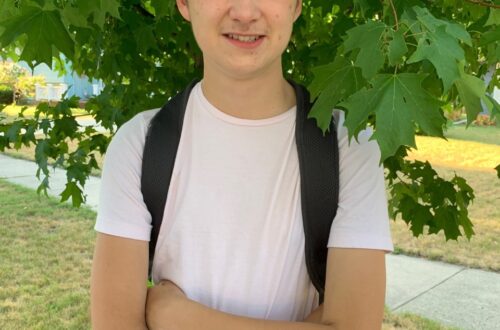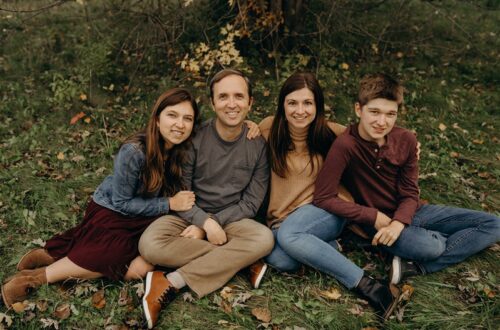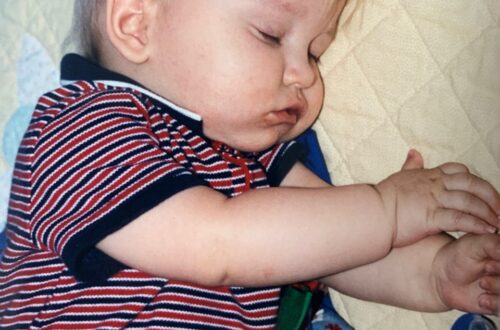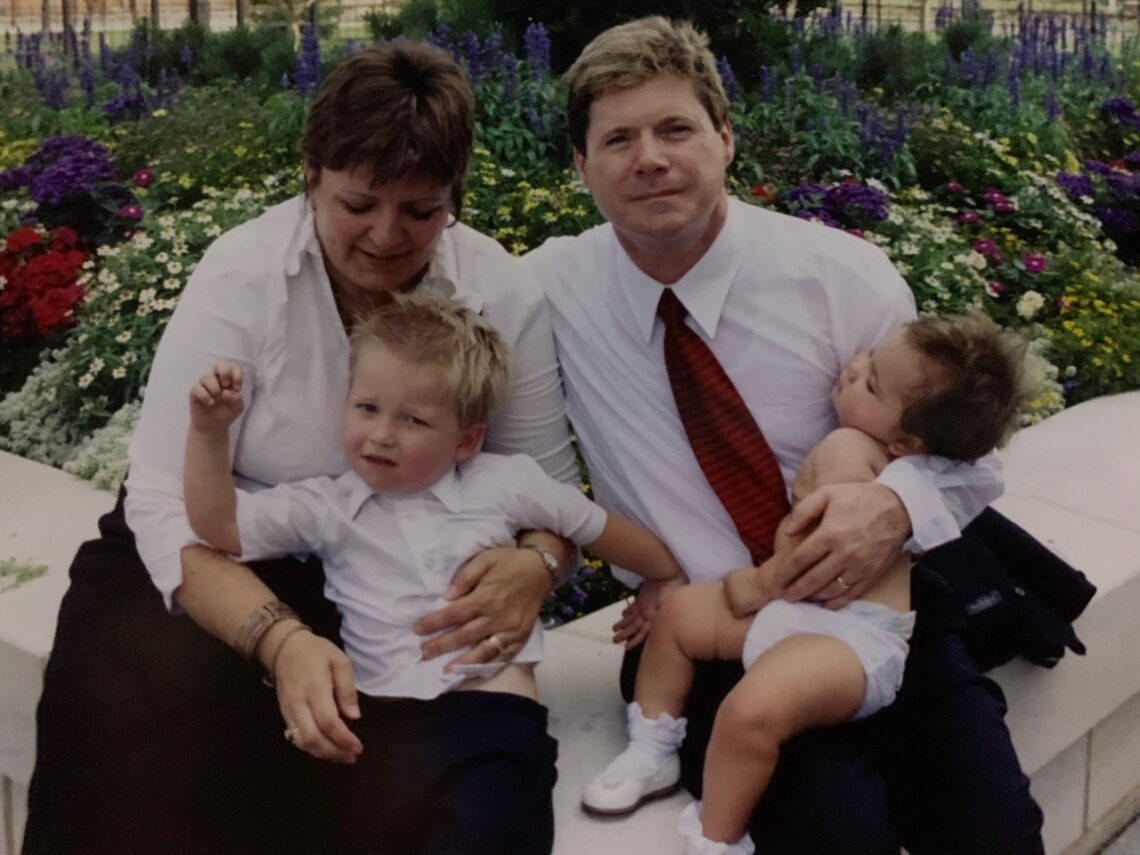
How to help
In early July, just a day or two after we had gotten back to Fargo from a visit with my mom, J and I were at the 4-way stop on the corner of 25th Ave N and 10th Street N when a car suddenly rear-ended us–twice. Then, just as I looked up in the rearview mirror, the silver sedan gunned it in reverse about half a block. I got out of the car (which probably wasn’t the smartest idea) and started motioning and yelling at the driver to pull over so we could exchange information. I knew in my gut she wasn’t coming back, so I memorized the crap out of her plate as I screamed at her. The woman threw her car into drive again and flipped me off as she flew past me and my car (and through the intersection), going about 45 mph down a 25 mph road.
When I got back to the car, J was in hysterics. In fact, he fell into hysterics the moment the woman made first contact with our bumper. It was loud. The force was hard enough to lock our seatbelts (and send me to the chiropractor for a few weeks) and the second impact had J crying out “make it stop!” I know I scared him even more when I got out of the car and started yelling at the woman. I’m sure the words I used (the “off limits” words) scared him. When the woman sped off it scared him. He got even more hysterical when I came back to the car, and he saw me frantically scrambling for a pen and paper to write the plate number down (the cops later traced it, and the car ended up being a stolen car from western North Dakota) and dialing 911. When I pulled the car around the corner and told J we were waiting for the police, he was so anxious he had to get out of the vehicle. I called Steve at work, told him what had happened, and that I needed him to bring J home. Luckily J and I weren’t seriously hurt, and the car only sustained bumper damage.
The police arrived first. I explained right away that J had autism and that he was very distressed, because I could tell the police officer was concerned. Once I said “autism” her face softened immediately and she asked me what she could do to help. I told her he probably just needed some space and that my husband was coming to get him. She asked me if he was injured and I told her I didn’t think so. She offered to give him an ice cream coupon to help him calm down (something our police force gives kids who are “caught” wearing their bike helmets) and I told her she could try. J took the coupon but was so worked up, he couldn’t read what the coupon said. I was grateful for her kindness and compassion. I know that’s not always how it goes.
I thought of this incident when I had a friend ask me the other day “what’s the best thing to do when you see a parent and a kid with autism struggling in public?” I had to think long and hard about this. If she had asked me this question when J was 3 and J’s autism diagnosis was still fresh and raw, I would say to her “don’t say or do anything” because that’s the place I was at when J was little. I felt really vulnerable as a young mom. I wasn’t confident in my parenting skills (I’ve learned since that no one is, and no one has the answers, and that’s okay because we’re all muddling through it–but I didn’t realize that as a young mom). I was still new to autism myself (I was still learning J’s triggers and how to navigate meltdowns). But at the same time, I desperately wanted help and I didn’t know how to ask for it or what to ask for, especially when both J’s and my emotions were running high. I thought people were judging me for being a bad mom (because I did have some run-ins with older people who told me exactly what I was “doing wrong” during one of J’s meltdowns). I didn’t want anyone talking to me. In those moments I just wanted to disappear but I wanted people to know I was struggling at the same time.
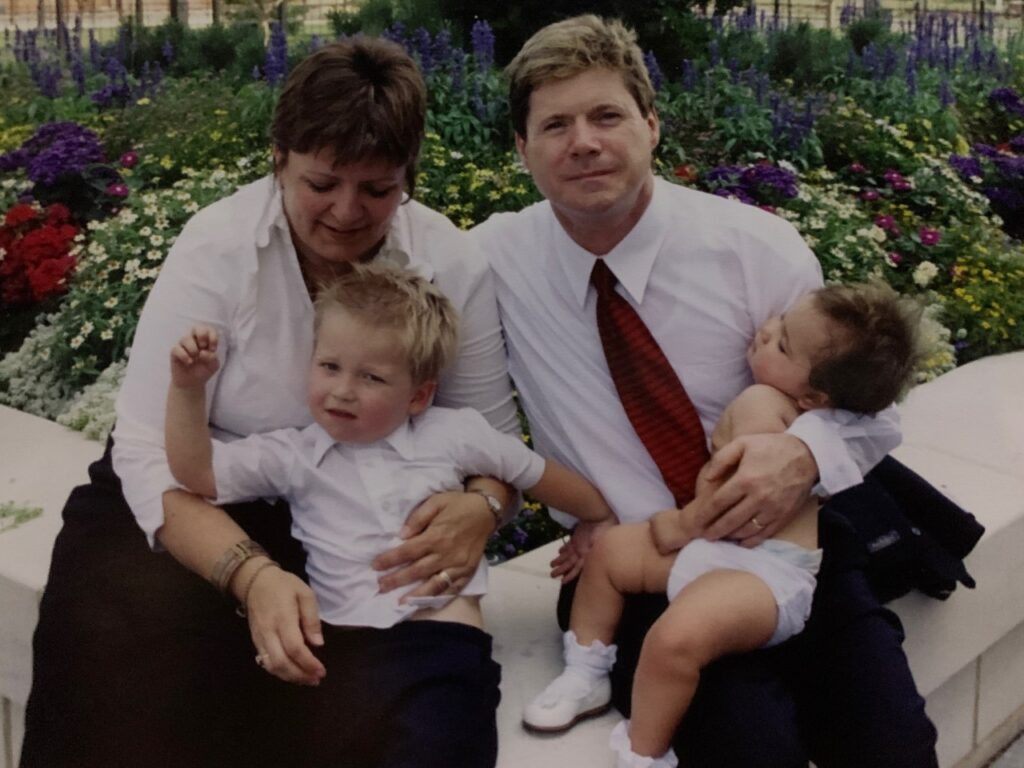
I know that doesn’t help answer the question “what’s the best thing to do when you see a parent and a kid with autism struggling?” And I’m not sure my young mom experience is how other parents of autistic children feel either. But over time, I’ve learned some things about autism and about myself that might help other people share some kindness. Here are my suggestions from what I’ve learned over the last 19 years:
To the stranger who wants to help:
1) Use mindfulness: Acknowledge the situation without judgement. You can say, “some days are tough aren’t they?” You don’t have to say more than that. You don’t have to say, “some days are tough and it looks like he’s out of routine, or looks like she needs a nap.” Parents don’t want judgement or solutions. They just want to be seen.
2) Offer to help if there are other things happening besides the meltdown: If you see there’s a newborn in a car seat in the Target cart screaming while the toddler with autism is screaming on the floor, offer to help with the newborn. If there are grocery bags all over the parking lot and there’s a screaming toddler with autism on the ground, offer to help with the grocery bags. If there are safety concerns (like cars in the parking lot that may be a danger to the parent and toddler struggling) serve as protective barrier to the parent and child working things out. Your acts of kindness will be greatly appreciated and they won’t seem judgmental.
3) If you have your own kids with you, explain to them that everyone has tough days and sometimes we have a hard time expressing our needs or knowing how to cope. It’s a great way to help your kids (and the people around you) understand autism a little better and the extra bonus of helping your kids (and the people around you) talk about mental health because we all have times in our life where we have a hard time expressing ourselves or knowing how to cope and even “normal” people don’t act appropriately all the time.
4) Educate your children and those around you about autism and mental health. It’s easier to be nonjudgmental (and therefore more helpful) when you understand autism and how communication struggles and anxiety make it hard for autistic individuals to move and cope in public. It’s also a good reminder for your kids (and others) to see that the world is designed for “normal” people, and people with disabilities have to re-arrange their thinking, feelings, and comfort zones to move in our “normal” world. That can be exhausting so when they seem to “slip” it’s not because they’re misbehaving but that they’re working so darn hard and are so darn tired.
J’s now an adult and no longer that screaming toddler rolling around in the parking lot. He’s come a long way since those days, and a public meltdown is very, VERY, rare, but sometimes (like all of us), he doesn’t always respond appropriately to stress triggers. This happened in the Hornbacher’s parking lot last week when I asked him to wear his mask properly. He started yelling at me and jumping up and down waving his hands. Since he wasn’t in a great state of mind, I asked him to wait in the car where he could emotionally work things out. The day of the car accident, he was screaming and crying and running around and waving his hands too. That’s a little more scary looking than a toddler in a parking lot. It made me think of the important job I have of explaining to people–in a short amount of time–what is going on. It’s a little more high-stakes for an autistic adult. It had me thinking a little bit more about solidifying a better strategy to help others understand J and keep both him and me safe. I’m not sure what that looks like yet. Luckily, in the case of the cop, I could tell she knew enough about autism to offer kindness and let him be until he could settle himself back down. I can’t guarantee if that will always be the case, so I’m going to have to think of a better way to have the public understand J when he is in a state like that.
But for now, to those of you who are wondering how to help a family struggling with a meltdown in public–especially those with younger kids, I would ask you to remember these 4 things: openly acknowledge that some days are tough, offer to help in a nonjudgmental way, explain to those around you that some days are tough and hard to navigate , and educate those around you about autism. It may not feel like much, but it will to those who are struggling in the moment.
I’ll get back to you on how to help families with adult children with autism in a little bit 🙂


